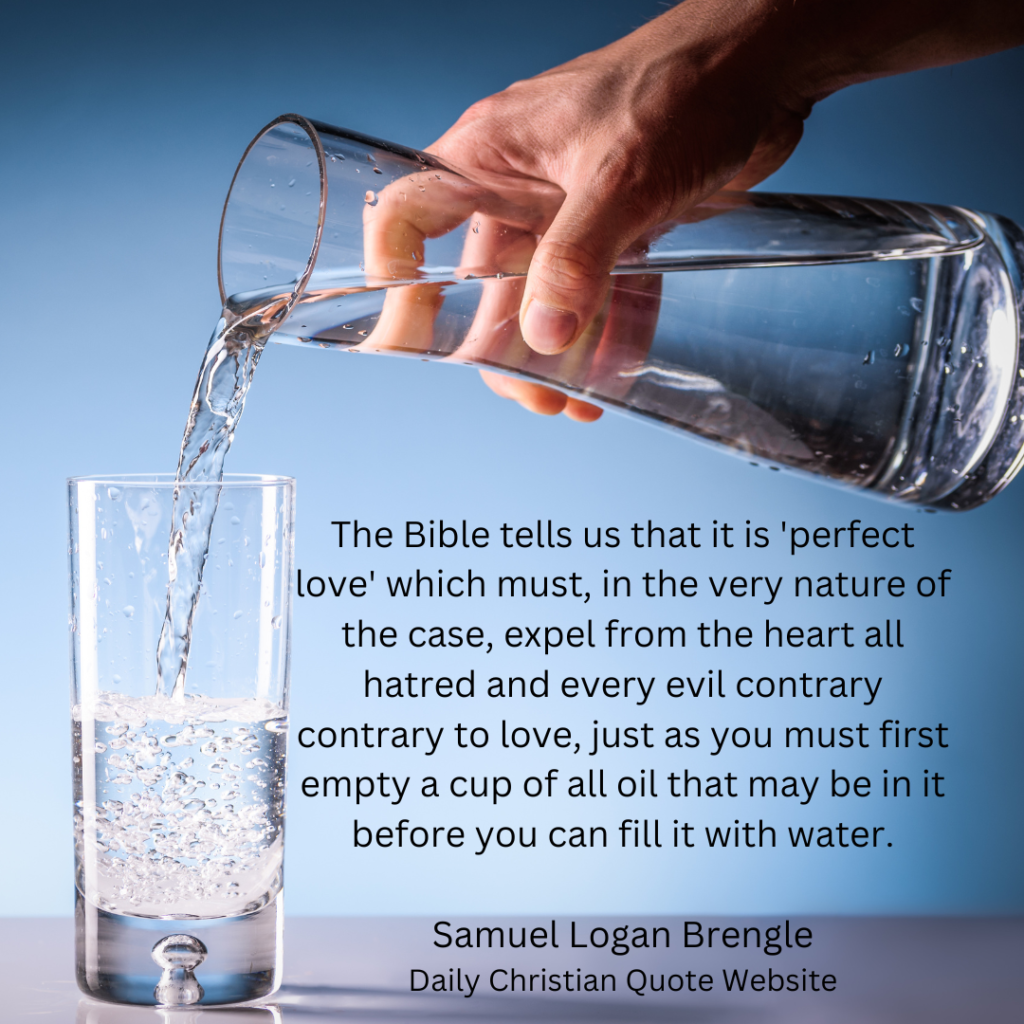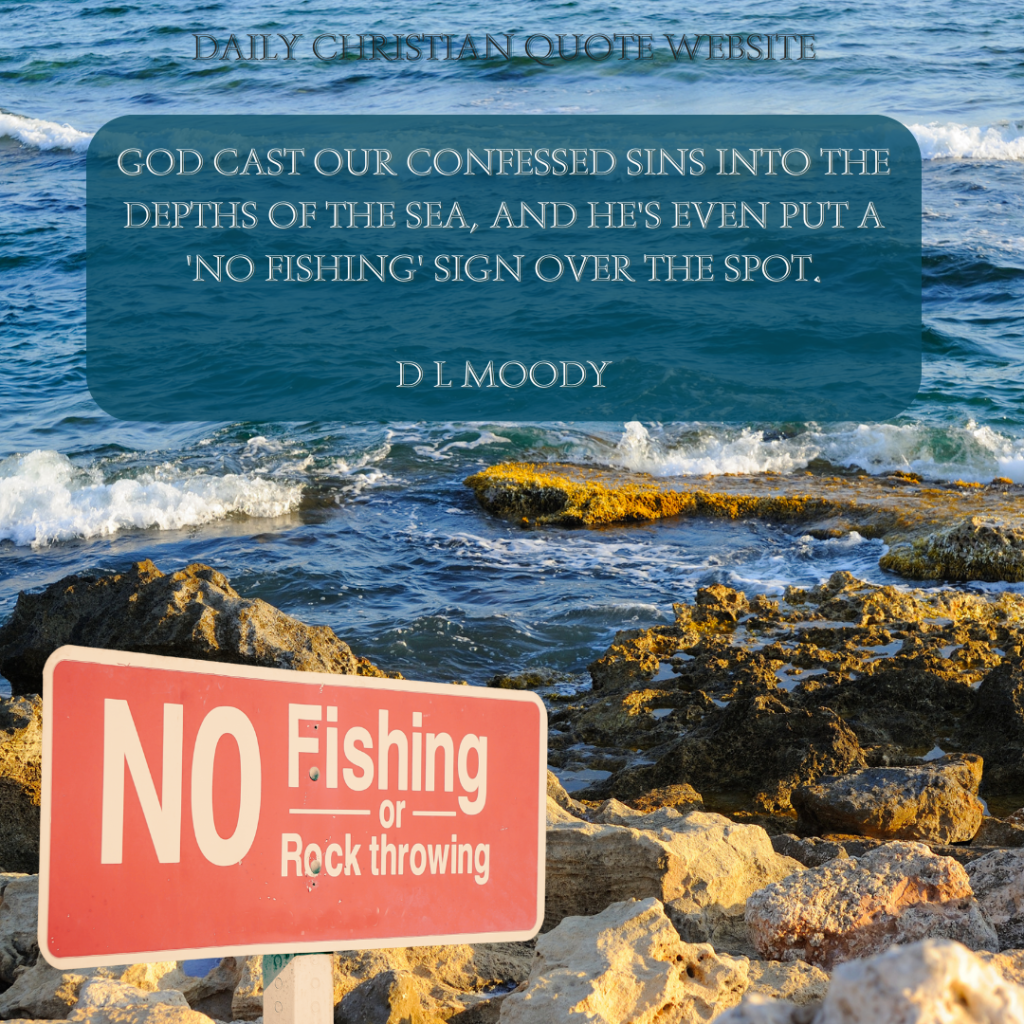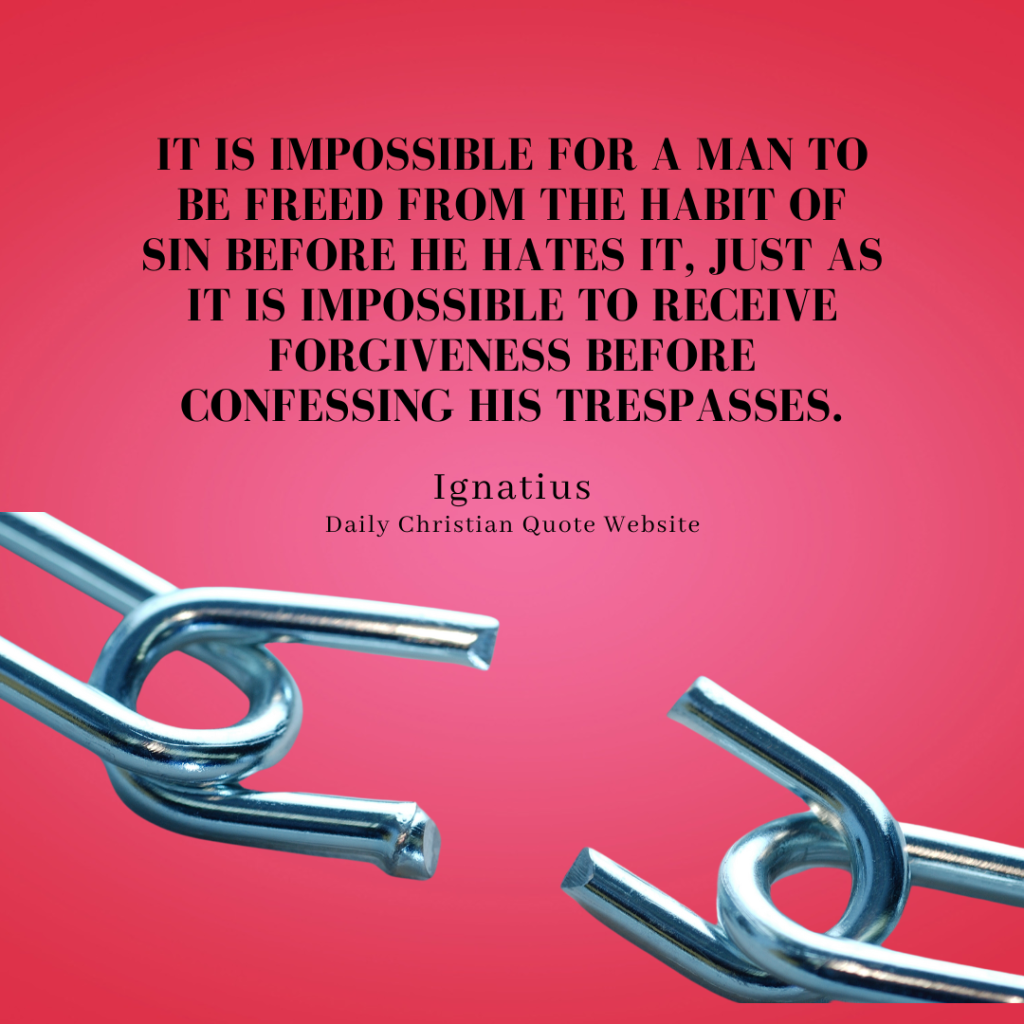Sin demands to have a man by himself. It withdraws him from the community. The more isolated a person is, the more destructive will be the power of sin over him, and the more deeply he becomes involved in it, the more disastrous is his isolation. Sin wants to remain unknown. It shuns the light. In the darkness of the unexpressed it poisons the whole being of a person. This can happen even in the midst of a pious community. In confession the light of the gospel breaks into the darkness and seclusion of the heart. The sin must be brought into the light. The unexpressed must be openly spoken and acknowledged. All that is secret and hidden is made manifest. It is a struggle until the sin is openly admitted, but God breaks gates of brass and bars of iron (Ps. 107:16). Since the confession of sin is made in the presence of a Christian brother, the last stronghold of self-justification is abandoned. The sinner surrenders; he gives up all his evil. He gives his heart to God, and he finds the forgiveness of all his sin in the fellowship of Jesus Christ and his brother. The expressed, acknowledged sin has lost all its power. It has been revealed and judged as sin. It can no longer tear the fellowship asunder. Now the fellowship bears the sin of the brother. He is no longer alone with his evil for he has cast off his sin in confession and handed it over to God. It has been taken away from him. Now he stands in the fellowship of sinners who live by the grace of God and the cross of Jesus Christ. The sin concealed separated him from the fellowship, made all his apparent fellowship a sham; the sin confessed has helped him define true fellowship with the brethren in Jesus Christ.
Forgiveness
Vincent de Paul
Let us beware of complaints, resentments, and evil-speaking against those who are ill-disposed to us, discontented with us, or hostile to our plans and arrangements, or who even persecute us with injuries, insults, and calumnies. Rather let us go on treating them as cordially as at first, or more so, as far as possible showing them esteem, always speaking well of them, doing them good, serving them on occasion, even to the point of taking shame and disgrace upon ourselves, if necessary to save their honor. All this ought to be done, first, to overcome evil with good, according to the teaching of the Apostles; and secondly, because they are our allies rather than our adversaries, as they aid us to destroy self-love, which is our greatest foe; and since it is they who give us an opportunity to gain merit, they ought to be considered our dearest friends.
Jennie Allen
We are all hiding from each other with big fig leaves, but God says, “You could stop because I am a way better covering. I have an actual payment for all the sin you are hiding. But it will take coming out from behind your leaves. It will take humility to see that you need Me”
Samuel Logan Brengle
D. L. Moody
Jack Frost
When most people read the parable Jesus told in Luke 15, they refer to it as the story of the “Prodigal Son.” Religion traditionally has made this story about the failure and sins of the son, just as religion often focuses more on the deeds of the sinner rather than on what God has done to restore the relationship between Himself and His children. But this parable is more about a father’s love and cry for intimacy than it is a son’s rebellion. Although the son did spend his inheritance extravagantly, how much more recklessly did his father give honor, compassion, forgiveness, and grace to his son when he least deserved it?
Jack Frost
Daily Christian Quote Website
———
Ignatius
Lysa TerKeurst
Forgiveness doesn’t require reconciliation. Sometimes reconciliation isn’t possible or safe. Forgiveness is your decision that no one can take away from you. It’s you honoring God. It’s you honoring your healing process. It’s you deciding you’ve suffered enough because of what happened. It’s empowering and it is beautiful. Reconciliation requires that both people are willing to do the hard and humble work of coming back together. If they weren’t willing to honor the work necessary to come back together in a healthy way, that doesn’t make you a failure. Not even close. Your redemption by God is not held hostage by someone else’s choices. It’s between you and God.
Marta Matejkowska
Timothy Keller
When anything in life is an absolute requirement for your happiness and self-worth, it is essentially an ‘idol,’ something you are actually worshiping. When such a thing is threatened, your anger is absolute. Your anger is actually the way the idol keeps you in its service, in its chains. Therefore if you find that, despite all the efforts to forgive, your anger and bitterness cannot subside, you may need to look deeper and ask, ‘What am I defending? What is so important that I cannot live without?’ It may be that, until some inordinate desire is identified and confronted, you will not be able to master your anger.



